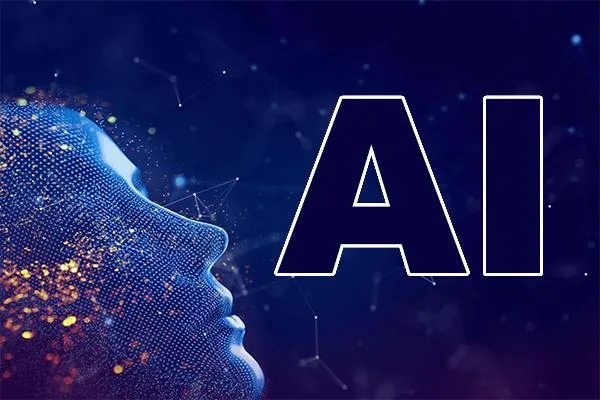BLOG
Building The Kingdom
Church Messenger - Helping You Engage, Equip, and Empower The Church
Church Messenger Blog
Church Growth, Discipleship and
Using Technology to Build Relationships
Subscribe to Church Messenger Blog
Don't miss an article. We will ens you an email and text when new articles are published on the Church Messenger blog.

A.I, Pastors, and the Church: Navigating the Future
Artificial intelligence, also known as A.I., has become a buzzword in recent times. It seems like every industry is trying to leverage the power of machine learning and automation to make their processes more efficient and effective.
However, Artificial Intelligence (AI) is not a new phenomenon, despite the recent surge in interest. In fact, we have been using AI in various forms in our daily lives for quite some time. From voice-activated personal assistants such as Siri and Alexa to recommendation algorithms used by Netflix and Amazon, AI has seamlessly integrated into our routines. It helps us navigate through our day, whether it's managing our schedules, suggesting our next binge-watch, or even forecasting the weather. AI, in its varied forms, is an omnipresent technology, enhancing our lives in ways we often take for granted.
But what about the Church? Will pastors embrace A.I. or reject it? In this blog, we’ll explore the different ways pastors are thinking about A.I. and how it can help the Church in the future.
The Fork in the Road For Pastors Regarding A.I.
When it comes to A.I., pastors seem to be split into two groups. Some see technology as a threat and are hesitant to jump on board. Others are embracing it eagerly and experimenting with it. So, which is the better choice? The truth is, both approaches have their merits.
On one hand, understandable caution is necessary, as we need to ensure that technology is used responsibly and ethically. On the other hand, innovation is essential for the Church to remain relevant and effective in today’s world. The key is to strike a balance between caution and experimentation.
As a pastor, the potential applications of Artificial Intelligence (AI) could greatly impact your ministry. Undoubtedly, the most apparent usage is an AI writing assistant, which can help in crafting engaging sermons and messages with ease. However, here are three additional possibilities you may not have considered:
Better Decision Making
A.I. can also help pastors make better decisions by analyzing data and offering insights on trends and patterns. For example, it can identify areas where the Church is thriving and where it needs improvement. This data can be used to inform strategic planning and resource allocation, which can ultimately lead to a more effective ministry.
A.I. can also assist in making more informed decisions through congregation engagement analyses and feedback.
Personalization
Personalization is another way that A.I. can benefit the Church. By analyzing data on individual members, A.I. can help pastors deliver more tailored messages that meet the specific needs and interests of their congregants. This can lead to deeper connections and more meaningful ministry
Thought Leadership
Finally, A.I. can help pastors become thought leaders in their communities by offering unique insights and perspectives on relevant topics. By using A.I. to analyze data and generate insights, pastors can offer valuable guidance on issues such as social justice, emotional health, and spiritual growth.
Topics Every Pastor Should Discuss with Church Staff
While there are many ways A.I. can benefit the Church, it’s important for pastors to have discussions with their staff about the ethical considerations and expectations surrounding technology. Below are some topics every pastor should discuss with their church staff
Potential and Limitations of A.I.
To help staff understand AI capabilities and set realistic expectations, pastors can initiate training sessions that provide an overview of AI, its applications in the church, and its operational limits. Experts in the field can be invited to these sessions to share their insights and answer any questions.
Real-world examples of AI usage in similar contexts can also be presented to help staff visualize the potential benefits. Pastors can also provide resources for further learning and encourage open dialogue about any concerns or queries. Importantly, they should emphasize that while AI can automate many tasks and provide valuable insights, it is a tool to aid, not replace, the human element in church activities. This balanced understanding will help set realistic expectations for AI use in daily tasks.
Ethical Considerations & Expectations
What are the ethical considerations surrounding A.I. and how will it be implemented in the Church? What are the expectations and norms that will guide its use?
Ethical considerations surrounding the use of AI in the context of the church are complex and multifaceted. Firstly, the issue of privacy and data security is paramount. Churches handling sensitive information must ensure that the AI systems they utilize have robust security measures in place to avoid breaches and misuse.
Secondly, there's the question of AI's decision-making processes. It's crucial that any AI application does not infringe upon the moral and ethical guidelines that the church adheres to. Thirdly, the potential for bias in AI systems is a significant concern. AI systems learn from data, and if that data reflects the biases of the society, the AI will mimic these biases, which could lead to unfair or discriminatory practices.
Lastly, there's the aspect of transparency. The church should clearly communicate to its congregation if and how it's using AI, allowing individuals to make informed decisions about their participation.
How to Strengthen Ministry Through A.I.
Strengthening ministry through AI involves leveraging technology to meet the congregational needs more effectively and extend support to community members.
This could entail the use of AI tools in managing administrative tasks, thus freeing up more time for ministers to engage in pastoral care. AI could also be utilized in enhancing the reach of sermons and biblical teachings. For instance, with AI-powered translations, churches can transcend language barriers, making their content accessible to a global audience. Furthermore, AI could provide data-driven insights into community needs, helping the church create targeted programs and initiatives.
Nonetheless, as the church embraces these technological advancements, it must remain vigilant to ensure that its use of AI aligns with its moral and ethical values, emphasizing the dignity and worth of all individuals.
Preparing the Congregation for a Technologically Driven Future
The church can prepare its congregation for a technologically driven future by first embracing and integrating technology into its own operations. This includes adapting e-giving platforms, utilizing digital platforms for sermons and Bible studies, and incorporating AI applications in administrative tasks.
Secondly, it can provide education and training on technology use, highlighting the benefits and potential challenges. This might include workshops or seminars on internet safety, digital etiquette, and the ethical use of AI.
Finally, the church can foster a dialog on the implications of technology and AI on faith and spirituality, providing guidance and comfort to those struggling with the rapid changes. Through these steps, the church can help its congregation navigate the complexities of a technologically driven future, while ensuring that its core values and beliefs remain unswerving.
Conclusion:
A.I. is already a part of our daily lives, and its impact on the Church is inevitable. As pastors and church staff members, it’s important to strike a balance between caution and experimentation when it comes to implementing technology. By using A.I. in strategic ways, pastors can deliver more tailored messages, make better decisions, and become thought leaders in their communities.
However, it’s also important to have discussions about the ethical considerations and expectations surrounding A.I. and to prepare congregants for a technologically driven future. By doing so, pastors can ensure that the Church remains relevant and effective in the years to come.
Jon Cordonier
Church Messenger Co-Founder and CEO. Jon Cordonier has worked in marketing, web design, and on Church staff for 20 plus years.





